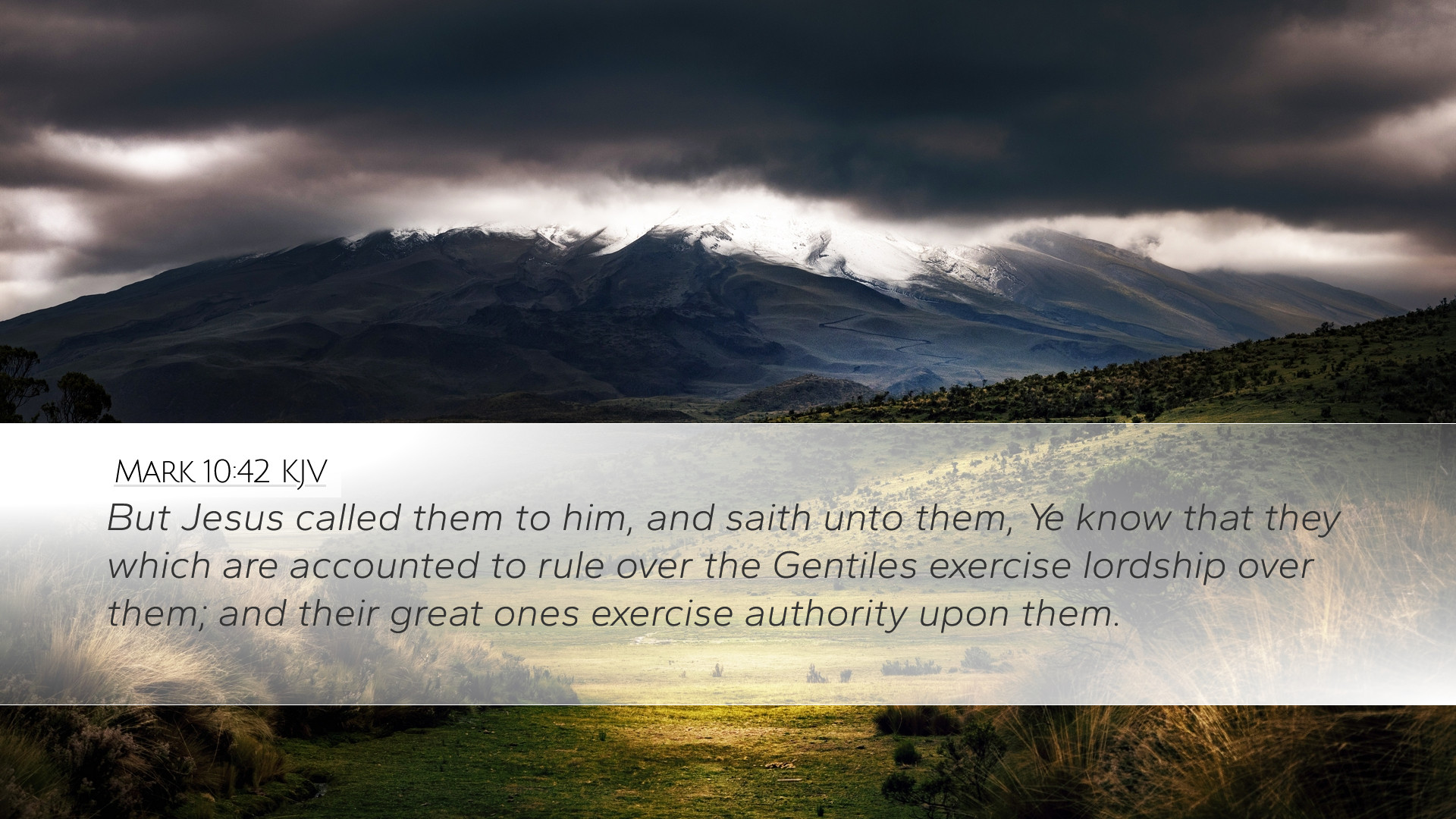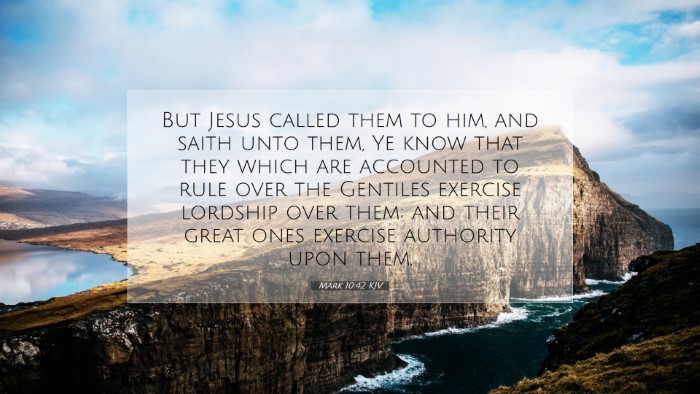Commentary on Mark 10:42
Mark 10:42 states, "But Jesus called them to Him, saying, You know that those who are considered rulers over the Gentiles lord it over them, and their great ones exercise authority over them."
Contextual Overview
This verse appears in a larger passage where Jesus addresses his disciples in the context of their aspirations for greatness and authority. It is pivotal for understanding the contrast between worldly leadership and the model of service that Jesus presents.
Theological Insights
In examining this verse, several theological themes emerge:
- Authority and Power: The verse highlights the dynamics of power and control that often characterize human leadership.
- Servanthood: Jesus implies an alternative form of leadership—one grounded in humility and servanthood rather than domination.
- Discipleship: The call to follow Christ includes embracing a radical redefinition of greatness and authority.
Commentary Summary
Matthew Henry
Henry emphasizes that Jesus exposes the flaws in the hierarchical structures of Gentile rulers, who exercise their authority with an iron fist. He notes that such leadership styles thrive on autocracy rather than genuine care for the people. The contrast presented by Jesus is aimed at illustrating that true leadership in the Christian context is rooted in love, humility, and service.
Albert Barnes
Barnes elaborates on the cultural context, indicating that Gentile leaders are often motivated by a desire for personal glory. They exert authority over their subjects, seeking to maintain their position through force and intimidation. Conversely, Jesus encourages his followers to adopt a lowly and nurturing approach to leadership. The call to Christian servanthood contrasts sharply with worldly ambitions, and Barnes illustrates this with practical applications for church leadership today.
Adam Clarke
Clarke provides a detailed exegesis of the term "lord it over." He highlights that such authority often leads to tyranny and oppression, creating a deep divide between rulers and the ruled. He urges church leaders to reject such practices, advocating instead for a model based on mutual respect and service. Clarke stresses that genuine leaders in the church must be servants first, reflecting Christ’s own servanthood.
Practical Application
The insights drawn from this verse have profound implications for modern church leaders, students of theology, and lay Christians:
- Re-evaluating Leadership Styles: Leaders must continually assess their approaches to ensure they reflect Christ’s model of servanthood.
- Encouraging a Culture of Service: Discipleship involves cultivating an attitude of willing service, both in the church and in broader society.
- Fostering Community: Encouraging shared leadership and mutual submission can break down hierarchies that lead to domination.
Conclusion
Mark 10:42 stands as a cornerstone for understanding the nature of true leadership within the Christian faith. By aligning leadership practices with Jesus’ radical call to servanthood, believers can counteract the oppressive tendencies of both ancient and modern forms of authority. This passage invites reflection and action toward a more equitable and loving community embodied by the church.


